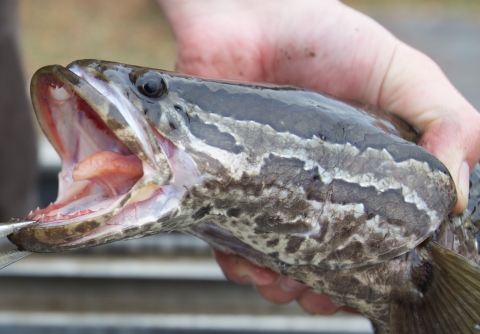What We Do
Injurious wildlife listing began in 1900 and continues to the present under the oldest national invasive species invasive species
An invasive species is any plant or animal that has spread or been introduced into a new area where they are, or could, cause harm to the environment, economy, or human, animal, or plant health. Their unwelcome presence can destroy ecosystems and cost millions of dollars.
Learn more about invasive species law in the United States. Known as part of the Lacey Act, the statute (18 U.S.C. 42) allows the Secretary of the Interior to prohibit importation and some shipment of wildlife species that are officially designated as injurious.
Understanding Injurious Wildlife Regulations: A collection of references, resources, and frequently asked questions regarding Injurious Wildlife Regulations.
The List of Injurious Wildlife: Summary of Species Currently Listed as Injurious Wildlife under (18 U.S.C. 42) (Lacey Act). The summary here shows wildlife species that are currently listed as injurious and includes updated numbers for taxonomic changes to the species’ names.
Our Services
Permitting Questions
Permits are needed to import and transport injurious wildlife, but they may only be approved for zoological, educational, medical, and scientific purposes. If you wish to import an injurious species or transport one that is covered by a previous permit, go to the Permit portal to see what you need to do. Interstate transport requirements changed on April 7, 2017, when the D.C. Circuit held that 18 U.S.C. § 42(a)(1) does not prohibit transport of injurious wildlife between States within the continental United States. Please see our guidance on the court decision regarding interstate transport.
Our Laws and Regulations
Report Violations
The Office of Law Enforcement is responsible for enforcing the injurious wildlife provisions of the Lacey Act. This law authorizes the Secretary of the Interior to list as “injurious” any wildlife deemed to be harmful “to human beings, to the interests of agriculture, horticulture, forestry, or to wildlife or the wildlife resources of the United States.” It prohibits import of any specimen of a listed species without a permit from the U.S. Fish and Wildlife Service. The maximum penalty for violating the injurious wildlife provisions of the Lacey Act is six months in prison and fines up to $5,000 for individuals or $10,000 for organizations.
To Report a Wildlife Crime:
Email: fws_tips@fws.gov
Call: 1- 844-397-8477


